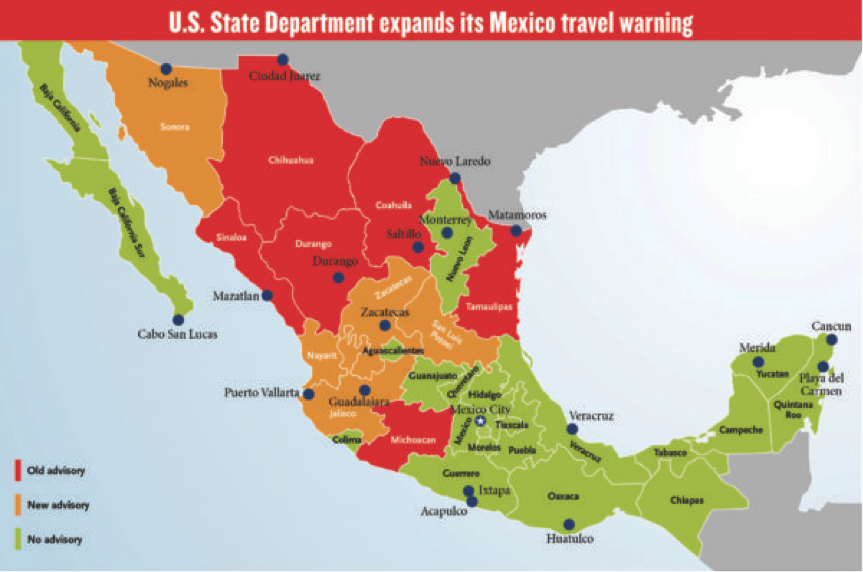The Mexican Mirage
The new political party, Morena, captured the Presidency, several Governors’ Offices and other state and municipal offices with the election of Andres Manuel Lopez Obrador on Sunday, July 1, 2018. Hopes are very high in Mexico that fundamental change will occur.
Examine the proposed changes and what will need to occur for the proposals to be achieved. Fundamentally these proposed changes are central to the survival of Mexico and has great consequences for Texas. Today, for example, it is estimated that one million jobs in Texas derive from trade with Mexico. A collapsing Mexico will send starving and disparate millions of people to Texas.
Here, currently, are the promises that the new President, Lopez Obrador and his party have made to Mexico:
- Mexico will obey the democratic rule of the law. That addresses the recurrent violence, corruption and impunity at all levels in Mexican society and culture.
- De-centralization will begin of the national government from Mexico City moving functions to other locales. The promise is to move more than thirty federal functions out of the Federal District in the heart of Mexico City to other states. The plan will include stipends to move persons critical to those functions. It is additionally proposed to address the vulnerability of Mexico City to earthquakes and flooding by improving the infrastructure but also working to reduce the population and resources concentrated in Mexico City.
- Revitalize Mexican agricultural production. Make the nation self-sufficient in corn, beans, sorghum, beef, chicken, eggs. The nation was self-sufficient until late in the 20th Century but today must import substantial percentages of basic food items.
- Save the energy sector. Mexico has large oil reserves and potential energy from solar, wind and thermal springs. But it must import gasoline and diesel.
- Promote economic development but not increase taxes or the public debt. The President’s charge is that existing contracts with the private sector are loaded with corruption. Savings from ending corruption will pay for new projects and jobs, housing for persons displaced by earthquakes, etc. Provide internet access to all of Mexico with free hot spots at some locales.
- Access to free education at all levels. A monthly scholarship will be granted and low-income university students will receive allowances of MXN$2,400 (120 dollars) per month.
- Provide guaranteed employment through apprenticeships for 2.3 million young people, with monthly wages of MXN$3,600 (180 dollars).
- The pension of senior citizens and retirees will be doubled to MXN$2,600 (130 dollars) per month
We will in the coming weeks examine all of these important goals, how they will be achieved and the progress. We will start with perhaps the most immediate.
Number 1. Solving The Problems Of Violence, Corruption and Impunity
There are a number of factors that account for these problems and cannot be solved such as moving an office by a Presidential decree. Lowering violence has to be a priority if for no other reason than it is at record levels, makes citizens across the nation feel unsafe and will suppress vacation and business travel to Mexico. Part of the violence comes from highly organized criminal groups that until they are broken apart and prosecuted will use violence to control others. Corruption in Mexico dates at least back to the years as a colony of Spain. Distances in travel and time resulted in limited and sporadic authority from the Crown and the delegates. Rather than local control from local assemblies as developed in the American colonies and then the United States, Mexico has retained cultural patterns of extreme hierarchy. This creates conditions favorable for corruption and not being held responsible, thus impunity. For AMLO as the President is known, and his party, Morena to achieve this goal will require deep and extensive cultural and institutional change. It will necessitate prosecuting thousands of persons involved in crime. It will involve broad and deep change in hundreds of government offices. It will require leadership, as an example, to address the threat of not accepting bribes leading to death of police officers. The Mexicans have a term for this: plota o plumo! Accept the bribe: silver or you will be killed-lead. Mexican government will require more effort to move from a single civil-like (Napoleonic) court system to a dual civil and criminal system like the United States.
These are deep, necessary cultural changes and will take years to accomplish. If they are not changed, little else can. This is where the new President has chosen to start. We will, in future comments, examine each of these eight campaign declarations, how they must occur and the progress. This chart is from the U.S. State Department in mid-2017 of travel advisories to the states of Mexico. Travel danger has worsened across Mexico since then.
